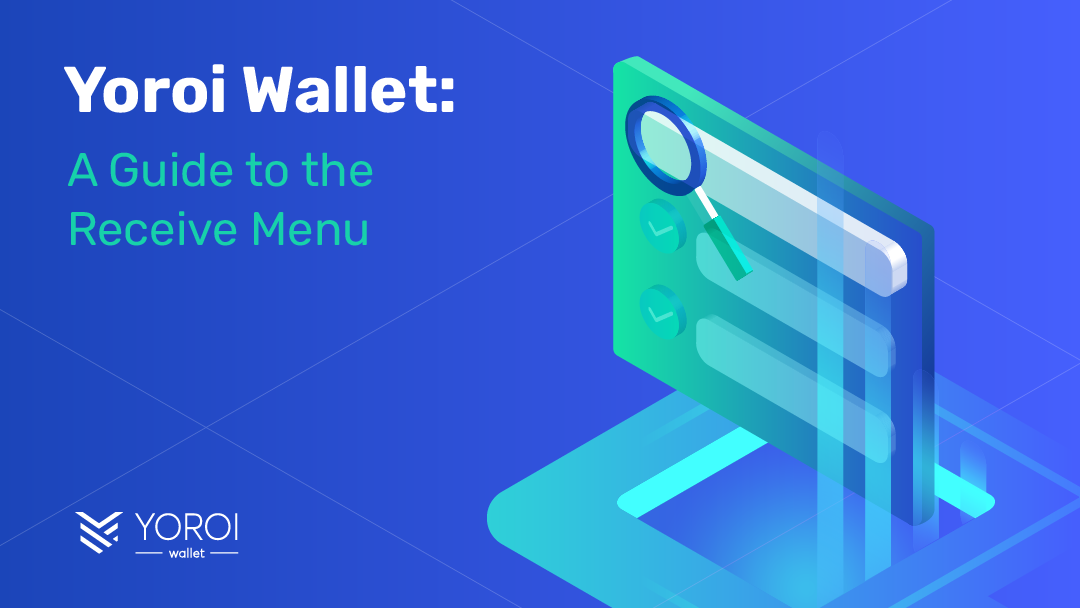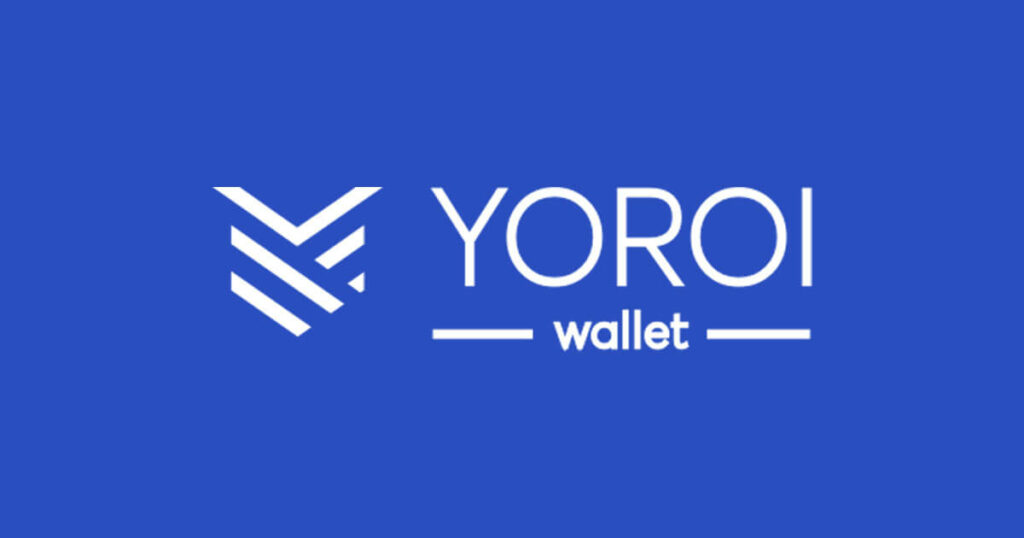
What is Yoroi Wallet?
Yoroi wallet is a non-custodial wallet for the Cardano (ADA) ecosystem and its native tokens. It is a light wallet, similar to Adalite, and works as a web browser extension, unlike the popular Daedalus Cardano wallet, which is a full-node software wallet that needs to be installed on a desktop.
A “light wallet” means that it doesn’t run the entire blockchain in your browser or on your computing device like Daedalus, but instead, connects to Emergo servers remotely to read and post transactions to the Cardano network. This allows the wallet to run on a device while using minimal resources and maintaining a high performance.
The Yoroi wallet can send, receive, store, stake, and manage Cardano network addresses and assets. The wallet is open-source, secure, fast, and very easy to use with a nice interface.
The Cardano blockchain technology company Emurgo, which handles much of the development and growth of the Cardano ecosystem, is the company behind the wallet. Users can trust and rest easy knowing that there is a reputable and professional company behind the development of the wallet.
Yoroi is available as a desktop extension for Chrome, Brave, Firefox, Microsoft Edge, and is supported on Windows, Mac, Linux, and iOS and Android for mobile.
Yoroi Wallet Pros:
- Secure
- Free and easy to use
- Stake ADA for passive income
- Can store assets and NFTs on the Cardano Blockchain
- Can be used on mobile devices
- Is open-sourced software
- Privacy-preserving- Yoroi can generate new external addresses every time it receives assets
- Can buy Cardano directly within the wallet
Cons:
- Only supports the Cardano and Ergo ecosystems
- Some users report slow loading, but it worked fine for me when testing and has positive reviews from many users.
The Yoroi Wallet for Cardano
There are currently two versions of the Yoroi wallet that users can choose:
- Byron wallet — This is for Cardano wallets created between 2017 and July 29th, 2020. The Byron wallet is now deprecated, meaning it is still functional and available, but not suitable for use by users who got involved in Cardano after 2020.
- Shelly wallet — This is the modern wallet that supports delegation to stake ADA and is the primary wallet that can be installed from the Yoroi website.
How Does The Yoroi Wallet Work?
The Yoroi wallet functions as a hierarchical deterministic (HD) wallet. This means that it stores the digital keys for your crypto assets on your device where the wallet is installed. Yoroi wallets use public and private keys, similar to other cryptocurrency wallets, which are needed to access and control the wallets.
Like most wallets, the Yoroi wallet uses a recovery phrase, a phrase that is unique to each individual wallet. This recovery phrase will be shown to you as you set up the wallet. It is crucial that this recovery phrase is written down on paper, never stored online, and kept somewhere safe and private, known only to you.
This recovery phrase will be the ONLY way to recover your assets should your computer or phone break, lose data, or gets lost. We go into far greater detail on the importance of recovery phrases and how to keep them safe in our article How to Keep Your Crypto Safe.
As the Yoroi wallet runs as a mobile app or a browser extension, the wallet needs to connect to a full Cardano node which is hosted by the Emurgo team.
This is in contrast to the Daedalus wallet, which synchronises a full Cardano node onto the user’s computer, providing the user will full control, enhancing decentralisation and self-sovereignty.
Setting up Yoroi is easy and can be done in under ten minutes. The wallet has very low resource consumption, so you don’t need to worry about it bogging down your browser or computer.
The wallet also supports integration with hardware wallets like Trezor and Ledger, providing users with the best of both worlds. Using Yoroi with a hardware wallet combines the convenience of a web wallet and all the functionality that comes with it, with the enhanced security of a hardware wallet.
For new crypto users, self-custodial crypto wallets may seem a bit unfamiliar and a little daunting. Yoroi is one of the most beginner-friendly Cardano wallets available, and the interface is simple to navigate and get familiar with. If you do find yourself overwhelmed and unsure, you may find this article on understanding Cardano-specific terms helpful.
How to Use Yoroi Wallet
Sending
Sending and receiving transactions with Yoroi wallet is easy. Users can check their account balance and activity by going to the Transactions tab.
The Send option will allow you to transfer assets to other Cardano addresses. To send, you will need to enter the wallet address where you would like to send the funds and the amount.
When sending crypto, using the copy-and-paste function is the best way to ensure there are no mistakes. Even if copy/pasting, always double-check after you paste the address to ensure that the address matches, as a common malware program can swap the intended address for one belonging to a scammer. That is one reason crypto domain names have become so popular.
Once you have entered the intended wallet address and amount, confirm the transaction by entering your spending password.
Receiving
The Receive tab shows your wallet address you can share with others to receive assets into your wallet. A privacy feature of the Yoroi wallet is that it will auto-generate a new address as soon as the previous one is used. This is a normal function. Each new address will still receive assets into the same wallet.
Navigating to the Receive tab, you can copy your wallet address and send it to whomever you choose or generate a new address as well.
Buying Cardano in Yoroi
A fantastic feature of Yoroi Wallet is that users can purchase ADA directly from within the wallet. This service is provided by a third-party purchasing provider called Changelly.
You will find a big green button that says Buy ADA. When you select it, the application will ask you to choose your receiving address. You can simply select your internal address, which will appear at the top, or you can enter an address manually.
Then you will be taken to the Changelly interface where you can select the currency you would like to pay in, your country, and the amount you want to spend.
Note that to use Changelly, KYC verification may need to be completed by entering information such as email, phone number, billing details and government documents.
Accessing DApps
Users can use Yoroi to connect to multiple DApps on the Cardano blockchain, everything from DeFi to NFT platforms and more.
Similar to how Metamask works with Ethereum, users can navigate to the DApp website and find the Connect option, normally located on the top right-hand side of the screen.
You will be prompted to connect to the DApp. Just agree and you are ready to go.
Yoroi Wallet Security
The Yoroi Wallet has a good track record and reputation for being a highly secure wallet, with no known security breaches to date. The wallet can be password protected and most modern mobile and computing devices can be further secured by passwords and/or biometrics.
When first setting up the Yoroi app, the user will be prompted to input a 6-digit pin in addition to a separate spending password.
The wallet’s source code has been thoroughly vetted by Emurgo and the community. Users who want to take extra precautions can use Yoroi in conjunction with a hardware wallet.
Yoroi Customer Support
If users have any issues or questions regarding the wallet, they can send a message to support directly from the Yoroi website. Alternatively, Cardano users can also use the active Cardano forum and Cardano Community Tech Support on Telegram.
Always be careful when reaching out to support on platforms like Reddit or Telegram as it is very common for scammers to private message you, pretending to work for support and ask for your recovery phrase so they can steal your funds. This will always be a scam as no member from any support team for any crypto service will ever ask for your private keys or recovery phrase.
Why Choose Yoroi Over Daedalus?
Both Yoroi and Daedalus wallets and great choices for Cardano users. They are secure and trustable, with a few key differences.
As Daedalus is a full-node wallet, it has certain advantages and disadvantages, such as:
- There is no browser extension or mobile support
- Initial setup can take up to 3 hours as the network needs to sync
- Daedalus requires 10-20 GB of free hard drive space on a computer as it needs to store the entire network records
- Daedalus wallet provides users with more self-sovereignty and requires no reliance on third-parties, unlike the Yoroi Wallet, which needs to connect to a node run by Emurgo
- Using Daedalus wallet and downloading a full node helps decentralise and contribute to the robustness of the Cardano network.
Final Thought
The Yoroi Wallet is a superb choice for users of the Cardano network. It is simple to use, has a nice interface, makes sending and receiving ADA assets easy, and can connect to DApps. The wallet provides:
- High security with numerous access-blocking features to keep malicious actors out and supports hardware device integration.
- Easy navigation and use for conducting transactions
- Good information about delegating and an easy platform for staking ADA
There isn’t anything negative to highlight about the wallet, as it works very well and performs exactly as it was intended. It is a very light wallet, which makes it fast and does not bog down your system or use many resources. Anyone who is familiar with the Ethereum MetaMask wallet will find Yoroi familiar, yet easier and nicer to use.



















